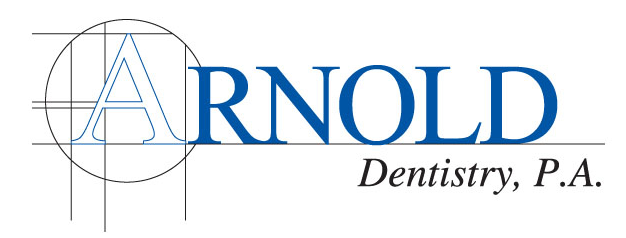How Sleep Quality Impacts Your Oral Health (And What Your Dentist Can Help With)
Wed, Nov 5th, 2025
A good night’s sleep does more than refresh your mind — it also protects your teeth, gums, and jaw. While most people know that brushing, flossing, and dental checkups are essential for oral health, few realize that sleep quality plays a surprisingly powerful role. From nighttime grinding to mouth breathing, the way you sleep can silently affect your smile every single night.
Here’s how your sleep habits connect to your oral health — and how your dentist can help you rest (and smile) better.
1. Sleep and Your Mouth: The Hidden Connection
Your mouth is a reflection of your overall health, and sleep is one of the body’s key recovery systems. When you sleep well, your body regulates saliva flow, repairs tissues, and maintains balance in your immune system. But when sleep quality drops, several problems can develop — and they often show up first in your mouth.
Common signs that sleep might be impacting your oral health include:
- Waking up with jaw pain or tightness
- Tooth sensitivity without obvious cavities
- Cracked or worn teeth
- Chronic morning dry mouth
- Snoring or mouth breathing
- Fatigue, headaches, or facial tension upon waking
If any of these sound familiar, your dentist can often see the physical clues long before you notice them.
2. Bruxism: When Stress Follows You to Sleep
One of the most common sleep-related dental problems is bruxism, or teeth grinding and clenching. It’s often linked to stress, anxiety, or even sleep disorders like sleep apnea. People who grind their teeth at night may not realize it’s happening — until they wake up with sore muscles, chipped enamel, or a dull ache in their jaw.
Over time, bruxism can lead to:
- Shortened or flattened teeth
- TMJ (temporomandibular joint) pain
- Headaches and earaches
- Cracks or fractures in teeth and fillings
- Gum recession or tooth mobility
Your dentist can identify these early warning signs during an exam. The good news? There are effective solutions. Custom nightguards, stress management techniques, and sometimes even minor bite adjustments can protect your teeth and jaw while you sleep.
3. Sleep Apnea: More Than Just Snoring
Another serious way sleep affects oral health is through obstructive sleep apnea (OSA) — a condition where breathing repeatedly stops and starts during sleep. Snoring, gasping for air, or waking up unrefreshed may signal this issue. Beyond fatigue and cardiovascular risks, sleep apnea can harm your mouth too.
When you struggle to breathe at night, your body often compensates by mouth breathing. This dries out oral tissues, reducing saliva — your natural defense against decay and bacteria. Without enough saliva, you’re more prone to:
- Cavities
- Gum disease
- Bad breath
- Mouth sores
Dentists are increasingly on the front lines of sleep apnea detection. Subtle signs like worn teeth, scalloped tongue edges, and a dry mouth can prompt your dentist to recommend a sleep study or collaborate with your physician for diagnosis and treatment.
In many cases, dentists can even provide oral appliance therapy — a comfortable, custom-made device that helps keep your airway open while you sleep. It’s a convenient alternative to a CPAP machine for many patients.
4. The Role of Mouth Breathing
If you often wake up with a dry mouth, you’re likely breathing through your mouth while sleeping. Mouth breathing can be caused by allergies, nasal congestion, or simply habit — but over time, it can lead to chronic dryness, enamel erosion, and gum inflammation.
When saliva decreases, your mouth loses its ability to neutralize acids, remineralize enamel, and wash away bacteria. This sets the stage for decay and periodontal disease. In children, mouth breathing can even affect jaw development and tooth alignment.
Your dentist can recommend solutions such as:
- Identifying nasal or sinus blockages with your physician
- Using a humidifier or nasal saline rinse before bed
- Wearing an appliance that gently encourages nose breathing
- Staying hydrated throughout the day
Simple changes can make a big difference in preventing long-term oral damage.
5. Nighttime Habits That Support Oral Health
Beyond dental appliances and treatments, improving sleep hygiene also supports a healthier smile. Here are a few dentist-approved tips:
🪥 Brush before bed — and never skip it. Bacteria thrive overnight when saliva production drops, so clean teeth before sleep are critical.
💧 Stay hydrated. Drink water before bed and upon waking. Avoid sugary or acidic drinks late at night.
🩵 Manage stress. Tension and anxiety often lead to grinding and jaw clenching. Meditation, stretching, or mindful breathing before bed can help.
🚫 Avoid alcohol and nicotine close to bedtime. Both dry out your mouth and worsen sleep quality.
😴 Prioritize consistent sleep hours. Going to bed and waking up at the same time helps regulate your body’s natural rhythm, which supports healing and saliva balance.
6. How Your Dentist Can Help
Your dentist is uniquely trained to notice the early effects of poor sleep — often before you even connect the dots. During a routine exam, they can look for:
- Signs of enamel wear, cracking, or flattening
- Jaw tension or muscle tenderness
- Gum inflammation or dryness
- Airway obstruction indicators (like a narrow palate or enlarged tongue)
If they suspect sleep-related causes, they may recommend:
- A custom nightguard to protect teeth from grinding
- A sleep study referral for possible apnea
- A mouth or airway assessment for better breathing
- Collaboration with medical professionals for comprehensive care
At Arnold Dentistry, patient care goes beyond treating teeth — it’s about improving your whole-body wellness. Addressing sleep issues not only prevents dental problems but also boosts your energy, focus, and confidence.
💤 Sleep Better, Smile Better
Your mouth is often the first place sleep problems show up — and your dentist can help you uncover the signs. Whether it’s night grinding, dry mouth, or snoring-related issues, the goal is the same: better sleep, better oral health, and a healthier you.
If you’ve noticed soreness, cracked teeth, or fatigue in the morning, don’t wait until it gets worse. Schedule a consultation at Arnold Dentistry and let us help you protect your smile — day and night.






